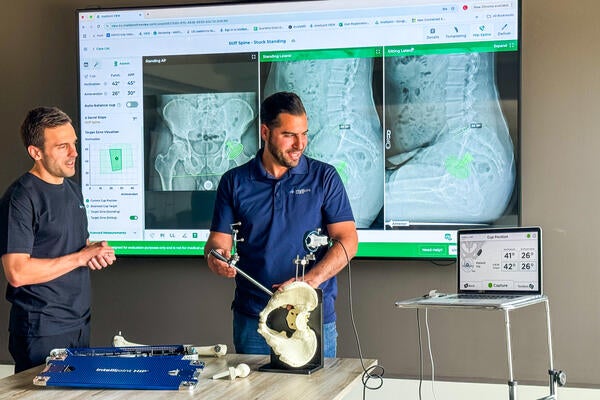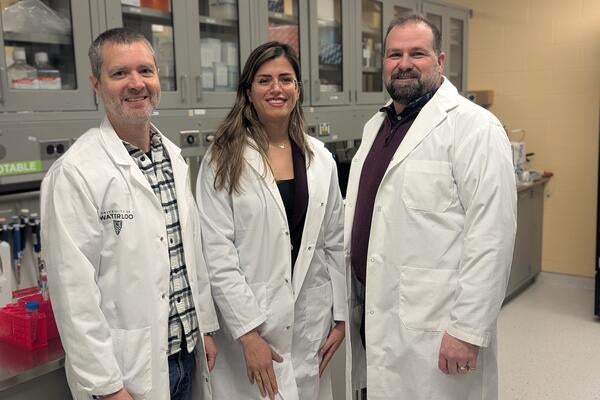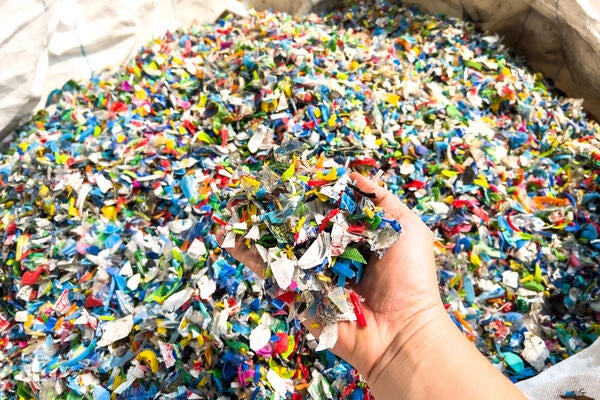
Can bacteria create green energy?
“Bug battery” may one day capture energy generated by bacteria in our wastewater.

“Bug battery” may one day capture energy generated by bacteria in our wastewater.
By Christian Aagaard Communications and Public AffairsMost people would turn up their noses at anything to do with sewage. Hyung-Sool Lee smells opportunity.
 “We need to do something for our future generations. We need to change our traditional manner of dealing with waste-water treatment,’’ says Lee, an assistant professor in the Department of Civil and Environmental Engineering. Lee also heads the Waterloo Environmental Biotechnology Lab, which looks at ways of getting more out of waste-water treatment than cleaner water and sludge.
“We need to do something for our future generations. We need to change our traditional manner of dealing with waste-water treatment,’’ says Lee, an assistant professor in the Department of Civil and Environmental Engineering. Lee also heads the Waterloo Environmental Biotechnology Lab, which looks at ways of getting more out of waste-water treatment than cleaner water and sludge.
Bug battery
Lee is currently looking at developing a microbial electrochemical cell - basically a bug battery that captures the electric power generated as bacteria metabolize waste.
Thriving on generous amounts of air pumped into waste treatment tanks, bacteria feed on suspended wastes in a typical waste-water treatment system. Undigested solids settle on the bottom of the system as sludge, and cleaner water heads down a pipe to the nearest stream.
As a profitable producer of large amounts of electricity, the microbial cell may not work, Lee says. But if the concept can be flattened into small wafers and stacked, it could lead to portable biological batteries that run on drops of organic material.
The large-scale cell can also be altered to produce such useful byproducts as hydrogen peroxide.
Human health applications
And, Lee adds, work with bacteria widens the possibility of other discoveries, including enzymes that may break down harmful deposits in another important circulatory system -- the human body.
Lee’s lab is also working on two other research projects:
“My research philosophy is to learn nature, and to get nature to help us,’’ Lee says. “If we make bacteria happy, then bacteria can make us happy, too.”

Read more
Two University of Waterloo affiliated health-tech companies secure major provincial investment to bring lifesaving innovations to market

Read more
Researchers engineer bacteria capable of consuming tumours from the inside out

Hand holding small pieces of cut colourful plastic bottles, which Waterloo researchers are now able to convert into high-value products using sunlight. (RecycleMan/Getty Images)
Read more
Sunlight-powered process converts plastic waste into a valuable chemical without added emissions
The University of Waterloo acknowledges that much of our work takes place on the traditional territory of the Neutral, Anishinaabeg, and Haudenosaunee peoples. Our main campus is situated on the Haldimand Tract, the land granted to the Six Nations that includes six miles on each side of the Grand River. Our active work toward reconciliation takes place across our campuses through research, learning, teaching, and community building, and is co-ordinated within the Office of Indigenous Relations.